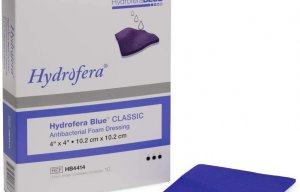
Essity acquires Hydrofera
It is hoped that alginate implants will help in the treatment of damaged soft tissue in future.

5th August 2014
Innovation in Textiles
|
Boennigheim
Christine Lämmle has won this year's research prize from the German Society for Wound Healing (DGfW).
At the DGfW's 17th annual conference in Bochum, she was presented with the prize for establishing an alginate implant colonised with stem cells for use in autologous soft tissue replacement.
Chirstine Lämmle worked as part of her doctorate on this partnership project run by the Department for Hygiene, Environment and Medicine at the Hohenstein Institute (Prof Dr D. Höfer) and the AG Experimentelle Plastische Chirurgie at the Bergmannsheil BG University Clinic, Bochum (led by PD Dr T. Hirsch, Dr F. Jacobsen).
It is hoped that their success in converting the body's own stem cells into adipocytes (fat cells) and colonising them on 3D implants will help in the treatment of damaged soft tissue in future.
The alginate implants are said to represent a very promising alternative. Their development was based both on earlier research work carried out at the Hohenstein Institute on combining biopolymers and stem cells in soft tissue replacement, and on the expertise of the Bergmannsheil working group on wound healing and tissue replacement.
Filling large injuries such as burns, pressure ulcers and large scars is a particular challenge in reconstructive surgery.
Most surgeons currently choose flap surgery for tissue reconstruction. This technique puts great strain on the surrounding healthy tissue and therefore on the entire patient, according to the Hohenstein Institute.

Business intelligence for the fibre, textiles and apparel industries: technologies, innovations, markets, investments, trade policy, sourcing, strategy...
Find out more